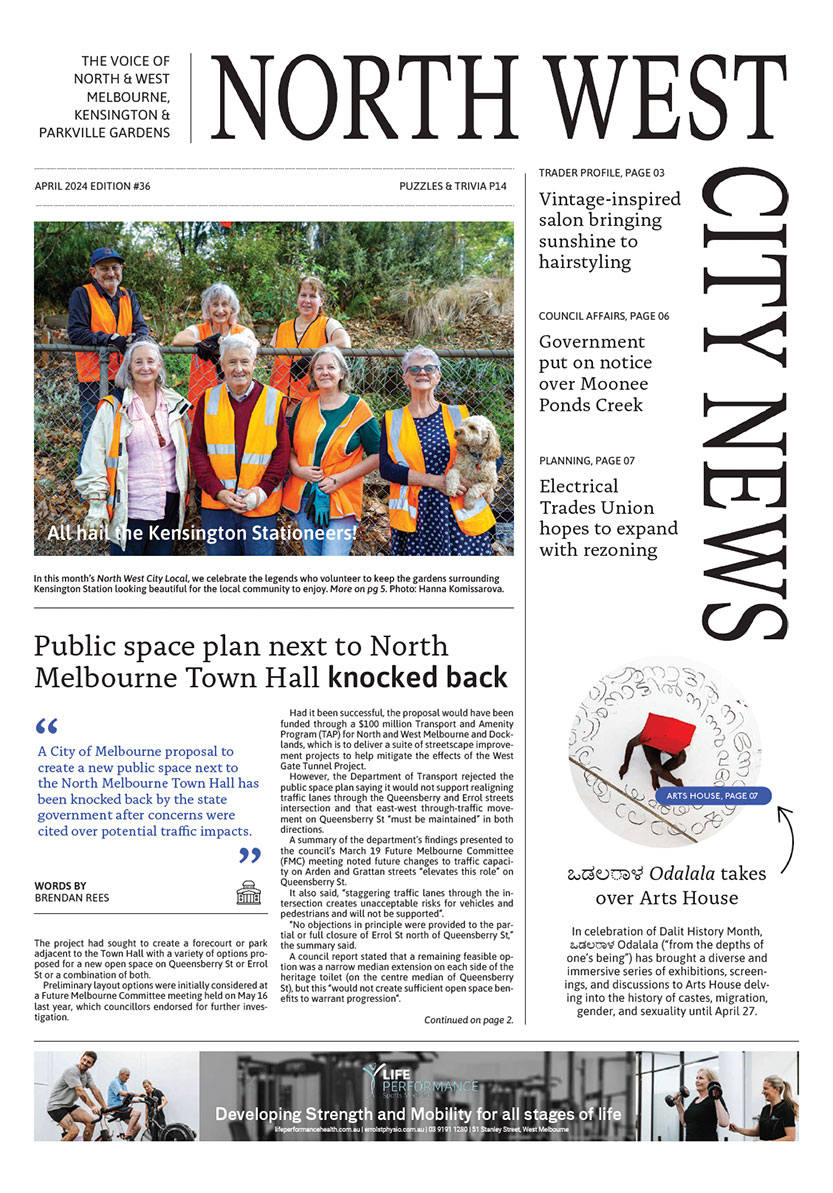Forty randomly selected locals to make up “people’s panel” on affordable housing
The City of Melbourne says “now is the time” to create an Australian-first community panel on the complex issue of affordable housing.
A panel of 40 randomly selected local residents could shape City of Melbourne policies on affordable housing as part of a new “people’s panel”.
The move would see members, recruited by an independent recruitment consultant and set to be representative of the municipality, take part in three all-day sessions and provide recommendations that the council would implement “to the maximum extent possible”.
The “Affordable Housing People’s Panel” would consider ideas and deliberate under a “clear and appropriate remit”, which would ask: “How can the City of Melbourne and the community deliver more affordable housing effectively?”
Endorsed by councillors at the September 5 Future Melbourne Committee meeting, the panel will meet for the first time in late October before a final report is produced in December.
Deputy Lord Mayor Nicholas Reece said the move to tackle the “diabolically tricky issue of affordable housing and how government responds to it” was an Australian-first.
“Around Australia we’ve seen citizens juries and people’s panels held on a variety of tricky issues such as drug reform policy and infrastructure policy. But we’ve never had a people’s panel held in this country on affordable housing,” he said at the meeting.
The council has assembled people’s panels before; in 2014 to help develop a 10-year financial plan for the city, and in 2018 to look at the Queen Victoria Market redevelopment.
A report by council officers argued urgent action was required.
“The current shortage of affordable housing is not the result of a single decision, rather the consequence of long-term underinvestment in the development and maintenance of affordable and social housing,” the report stated.
“Responding to this housing crisis … requires innovative solutions and collective action and support from all levels of society.”
The City of Melbourne defines affordable housing as “high quality rental properties for very low-, low- or moderate-income households, that cost no more than 30 per cent of the household’s gross income”.
In 2019 it estimated there was a shortfall of 6000 affordable homes across the municipality, however that figure was set to grow to 23,200 by 2036.
An engagement plan for the upcoming panel noted that NIMBYism (not in my backyard) at times held back affordable housing policy.
“There is strong support at all levels of government to partner with developers and the community housing sector to deliver solutions for our community … the community agrees as well, with broad support for affordable housing projects within the city.”
“However, this support reduces when communities consider affordable housing options in their own neighbourhoods.”
Cr Reece said people’s panels were important tools in working through and helping people understand incompatible views.
“People’s panels are really good at helping to work through challenging trade-offs in a particular area of policy making in a society. If you think about the affordable housing debate, you see that there are thees trade-offs everywhere. For example, people want their own home to go up in value as much as possible. But they want the [future] houses of their children to fall to an affordable price. Those two things aren’t necessarily consistent so how do you work through that trade-off?”
Cr Olivia Ball said it was time to cast a wider net of viewpoints.
“Deliberative democracy processes are often used and most useful for wicked problems such as this. We want the peoples’ input; we want to think more broadly and more laterally on this very important question. The time and resources we will put into this is a reflection of the priority for this council.”
As a local government the City of Melbourne do not play a major role in housing policy, however part of the panel’s role includes providing recommendations for what they should be advocating for to the state and federal governments.
The decision to create the panel is being seen as a win by advocates of deliberative democracy, a school of thought that claims political decisions should be the product of fair and reasonable discussion and debate among citizens.
One proponent, Dr Stan Capp – president of CBD residents’ group EastEnders – has for several years argued the City of Melbourne needed to better engage the community in decision-making.
Dr Capp (no relation to Lord Mayor Sally Capp), a former CEO of Southern Health, completed a doctoral thesis in 2001 on public healthcare in which a key focus was on community engagement.
He has previously been critical of a council-established people’s panel for the Queen Victoria Market (QVM), which involved non-impartial parties such as traders, which he argued was “poorly structured and had predictably disappointing outcomes”.
However, he was “extremely positive” about the Affordable Housing People’s Panel and congratulated those involved in establishing it.
“The paper being presented sets out the issues well and correctly identifies the importance of the question and remit, the need for independent randomly selected panellists and a commitment by the council to include recommendations to the maximum extent possible in future decision making,” he told North West City News.
As part of the panel process, the council also committed to identifying where it can’t incorporate a recommendation by the 40-strong group and “clearly explain why”.
Dr Capp said this was “good practice”.
He added: “[The panel] will demonstrate a ‘proof of concept’ of an approach that the City of Melbourne should embed in its decision making on matters of significant complexity.”
“The use of this strategy in dealing with the complex issue of affordable housing is an excellent opportunity to utilise this model of deliberative democracy and a well-designed evaluation tool should be adopted to make sure that any learnings are identified and will inform future panels.”

Jo Ryan unveils Ordered Chaos at Blender Studios






 Download the Latest Edition
Download the Latest Edition